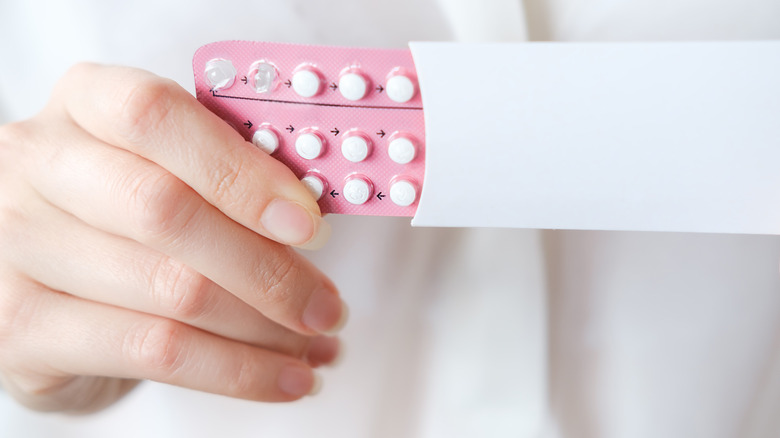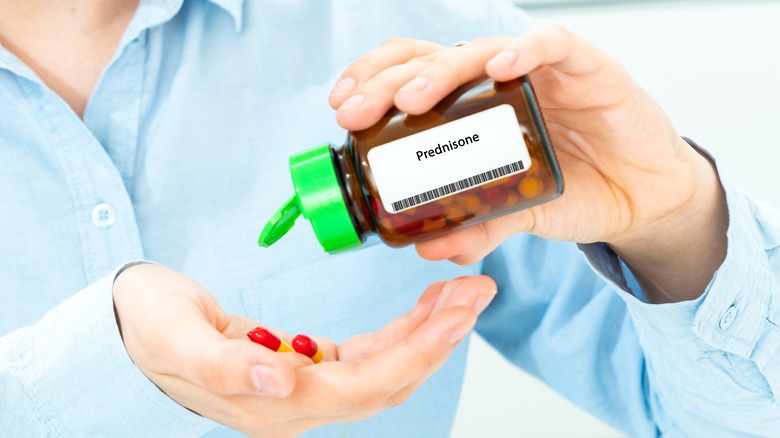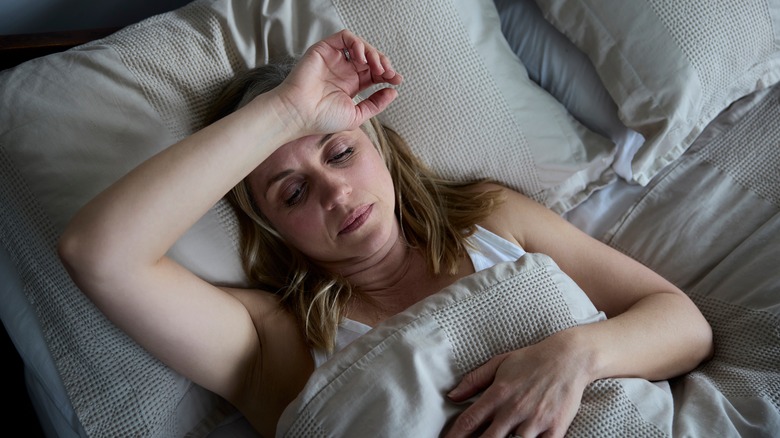You’ve looked forward to relaxing in your sheets all day. The moment you close your eyes, it’s lights out. But hours later, you wake up covered in sweat. Night sweats aren’t just waking up with a bit of moisture on your forehead, according to the Cleveland Clinic. This condition can affect your sleep by making you wake up with your clothing and bedding drenched. It can also cause reddening of the skin and a rapid heartbeat.
While night sweating is commonly attributed to hormonal fluctuations during menopause and pregnancy, it can also come from infections, hormonal diseases, neurological disorders, and medication. Common medications causing this condition include antidepressants, hormone regulators, blood sugar medications, pain relievers, and steroids.
Let us help you root out the cause of your night sweats by looking at several common medications that can cause this condition. You’ll also get some easy-to-implement advice on how to limit the impact night sweats have on your life.
Antidepressants are known to cause excessive sweating

Sweating at night is a common side effect of selective serotonin reuptake inhibitors (SSRIs) like Lexapro. SSRIs are a common depression medication that increases serotonin levels in the brain, according to the Mayo Clinic. They do this by selectively blocking the reabsorption of serotonin, making it more readily available, which is how they got their long name.
A 2024 study in Drugs – Real World Outcomes found that about 9% of patients succumbed to night sweats when taking SSRIs. The UK National Health Service also noted that this symptom could be severe at times. Other common side effects included drowsiness, dry mouth, weight gain, and constipation. There is also the potential for serotonin to become too high in the brain, known as serotonin syndrome. This leads to confusion, agitation, and muscle twitching. It’s essential to stop taking the medication immediately and see a healthcare professional with these symptoms.
While night sweats are common, they can be quickly dealt with by taking a few precautions. For example, try putting a fan near your bed to keep you cool. It’s also effective to use fewer blankets or a lighter comforter. You’ll also want to make sure to wear lightweight clothes. Research in Innovation in Clinical Neuroscience also found that benztropine helped with night sweats when needed.
Night sweats from birth control pills

Popping a birth control pill each morning? With 64.9% of women using oral contraception from 2024- 2025, you are part of the majority, per the Centers for Disease Control and Prevention (CDC). However, that little pill could be why you’re waking up sweaty.
Birth control pills help individuals not become pregnant by regulating levels of specific hormones within the body used for reproduction, specifically estrogen and progestin. They typically work by stopping ovulation from happening, per WebMD. However, birth control pills can cause fluctuations in hormones. Former health coach Danielle DeSimone told Parsley Health, “Oral contraceptives cause fluctuating levels of estrogen… So every day you’re having that peak and valley, and depending on what time of day you take the pill it can definitely cause that low estrogen overnight, which can cause night sweats for some women.”
To avoid those peaks and valleys, alternating when you’re taking the pill might help. You might also consider switching your birth control method to one lower in hormones, avoiding the highs and lows. If you are happy with your birth control method, try changing up your sleeping arrangements to stay cool at night.
Blood sugar regulators can lead to night sweats

Marsbars/Getty Images
Diabetes and sweating go hand in hand. If you have diabetes, you may have noticed that you sweat more than someone who doesn’t have this condition. Sweating at night is also common in those with controlled diabetes due to sugar fluctuations at night.
According to the CDC, diabetes is a chronic condition where the body doesn’t process sugar properly, leading to higher-than-normal blood sugar levels. It comes in three types: type 1, type 2, and gestational diabetes. The type depends on the cause, but everyone with diabetes takes a blood sugar regulator, like insulin. The side effect of regulating your blood sugar with medication is having instances of low blood sugar. This is especially common during the night when sufferers are sleeping. Healthline notes that this happens because low blood sugar causes you to produce too much adrenaline, which makes you sweat. Getting your blood sugar levels back to normal can help to combat the sweats.
It’s essential to ensure your blood sugar is well-regulated at bedtime to avoid sweating. This means you might want to avoid exercising or drinking alcohol in the evening. Specific blood sugar-regulating medications are more prone to causing night sweats, so you might also like to discuss this with your doctor.
Common pain medication has you sweating at night

Mynewturtle/Shutterstock
Do you have a little twinge in your back? Is your knee hurting a bit due to a fall? Many people think nothing of taking over-the-counter pain meds daily to help with the swelling and inflammation of joints from injuries or chronic conditions. You might even be prescribed nonsteroidal anti-inflammatory drugs (NSAIDs) as you age for arthritis. These medications come with different names, like ibuprofen, naproxen, or aspirin, according to the American Academy of Orthopaedic Surgeons.
You might not even consider NSAIDs causing night sweats unless you’re trying to break a fever, but they are known to make you sweaty. According to Dr. Sharon Orrange, M.D., “These medications lower fever by causing blood vessels to dilate, which lets heat more easily escape through the skin. This same mechanism may lead to sweating (via Prevention). So, taking Motrin or Aleve before you hit the hay can cause you to sweat during your sleep. You might even be sweaty if you took it hours before bed since naproxen can relieve eight hours of pain. Additionally, a study published in Prostaglandins & Other Lipid Mediators showed that ibuprofen altered sweat lipid mediators.
If you suspect NSAIDs are leaving you sweaty, you should consult your healthcare specialist for a viable alternative. You can also avoid taking these medications in the evening hours to prevent their side effects.
Steroids might be making your sleep sweaty

luchschenF/Shutterstock
In case you were wondering if it’s normal to sweat more while taking prednisone, it is. Steroid medications for inflammation can make you sweat, even at night. Known as corticosteroids, steroid medications, like prednisone, are used to treat various conditions. For example, they can be taken for lupus or arthritis, as well as for severe allergic reactions. They work by reducing swelling and altering the workings of the immune system, according to Medline Plus.
While it’s not entirely understood why steroid medications make you sweat, excessive sweating can be a common side effect. Individuals might also notice symptoms like aggression, agitation, and mood changes. If not taking the medication isn’t an option, alter your sleep conditions to account for the increased sweating at night by adding air conditioners, fans, and lighter clothing. These can help to mediate the side effects for a better night’s sleep. You might also want to consider taking the medication in the morning rather than at night.
Night sweating is a common side effect of several medications. Therefore, narrowing down the cause and working with your healthcare provider to limit how these affect your sleep will help you feel more rested and comfortable.




